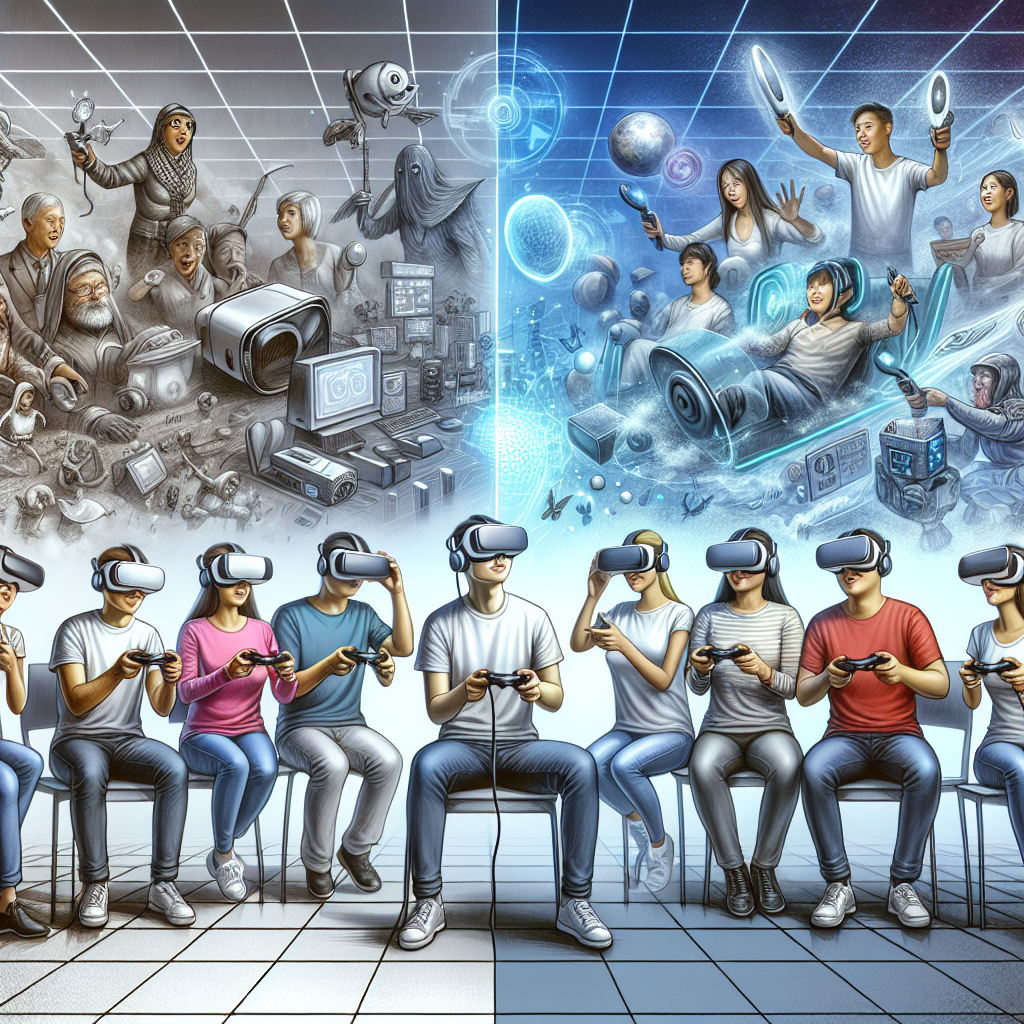Virtual reality (VR) is revolutionizing the way we interact with technology, offering immersive experiences that were once only possible in science fiction. From entertainment and gaming to education and healthcare, VR is reshaping the way we engage with digital content. In this article, we will explore the impact of VR on our daily lives and how it is transforming the way we interact with technology.
Enhancing Immersion and Engagement
One of the most significant ways VR is changing the way we interact with technology is by enhancing immersion and engagement. Unlike traditional screens, VR headsets transport users to virtual environments that feel incredibly real. Whether it’s exploring a distant planet, walking through a historical landmark, or attending a virtual concert, VR provides a level of immersion that captivates the senses and makes digital experiences more impactful.
Furthermore, VR promotes a greater sense of presence, allowing users to feel like they are truly part of the virtual world. This heightened level of engagement has profound implications for various industries, from marketing and advertising to training and simulation. Brands can create interactive VR experiences that deeply resonate with consumers, while educators can leverage VR to make learning more engaging and memorable.
Expanding Possibilities in Entertainment and Gaming
Virtual reality has unleashed a new era of possibilities in entertainment and gaming. With VR, users can step into the shoes of their favorite characters, explore fantastical worlds, and interact with environments in ways that were previously unimaginable. From cinematic storytelling to immersive multiplayer experiences, VR is redefining the boundaries of entertainment and gaming.
Moreover, VR has also revitalized classic forms of entertainment, such as live events and performances. Virtual reality concerts, sports events, and art exhibitions enable audiences to experience the magic of these events from the comfort of their homes. As VR technology continues to advance, the line between the physical and virtual worlds in entertainment and gaming will blur even further, offering unprecedented experiences for content creators and consumers alike.
Transforming Education and Training
In the realm of education and training, VR is revolutionizing how we acquire new knowledge and skills. Through immersive simulations and virtual environments, students can engage in hands-on learning experiences that transcend the limitations of traditional classrooms. Whether it’s exploring the human body in 3D, practicing surgical procedures, or simulating historical events, VR has the potential to make learning more interactive, accessible, and impactful.
Similarly, VR is transforming the landscape of professional training across various industries. From aviation and military to healthcare and engineering, VR simulations provide a safe and cost-effective way for individuals to practice complex tasks and scenarios. By replicating real-world environments and challenges, VR training programs offer a level of realism that can accelerate skill development and improve retention compared to traditional training methods.
Revolutionizing Healthcare and Therapy
Virtual reality is also making a profound impact on healthcare and therapy, offering innovative solutions for patient care and rehabilitation. VR applications have been used to alleviate pain, manage anxiety, and treat phobias through immersive experiences that distract and calm patients. Moreover, VR can provide medical professionals with a better understanding of complex anatomical structures and medical procedures, improving diagnosis and treatment outcomes.
Furthermore, VR technology is enabling remote healthcare services, allowing patients to access consultations, therapy sessions, and rehabilitation programs from the comfort of their homes. This has become especially valuable during the COVID-19 pandemic, as virtual care has helped maintain essential healthcare services while reducing the risk of exposure to infectious diseases.
Conclusion
Virtual reality is reshaping the way we interact with technology across various domains, from entertainment and education to healthcare and beyond. By offering immersive experiences, expanding the possibilities of digital content, and transforming traditional practices, VR has the potential to revolutionize the way we engage with the digital world. As the technology continues to advance, we can expect even more innovative applications of VR that will further enhance our interaction with technology in the future.
Frequently Asked Questions
-
How does virtual reality work?
Virtual reality uses headsets and sensory devices to create immersive, 3D environments that simulate physical presence in a virtual world. -
What industries are leveraging virtual reality?
Virtual reality is being utilized in entertainment, gaming, education, healthcare, training, real estate, retail, and more. -
What are the potential drawbacks of virtual reality?
Some potential drawbacks of virtual reality include motion sickness, sensory overload, and the need for expensive equipment.
